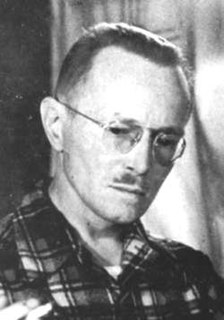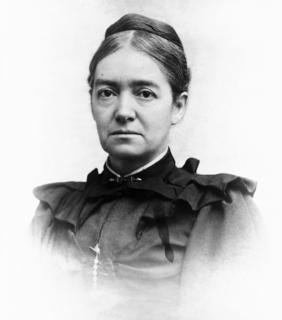A Quote by Oliver Wendell Holmes Sr.
You may have genius. The contrary is, of course, probable.
Related Quotes
I do not pretend to be able to prove that there is no God. I equally cannot prove that Satan is a fiction. The Christian god may exist; so may the gods of Olympus, or of ancient Egypt, or of Babylon. But no one of these hypotheses is more probable than any other: they lie outside the region of even probable knowledge, and therefore there is no reason to consider any of them.
Genius is its own reward; for the best that one is, one must necessarily be for oneself. . . . Further, genius consists in the working of the free intellect., and as a consequence the productions of genius serve no useful purpose. The work of genius may be music, philosophy, painting, or poetry; it is nothing for use or profit. To be useless and unprofitable is one of the characteristics of genius; it is their patent of nobility.
She smiled darkly and shook her head. 'I'm not crazy. I'm not. Of course what else would a crazy person claim? That's the Kafkaesque genius of it all. If you're not crazy but people have told the world you are, then all your protests to the contrary just underscore their point. Do you see what I'm saying?
A man may be a great statesman, and yet dislike his wife, and like somebody else's. A man may be a great hero, and yet he may have an unseemly passion, or an unpaid tailor. But the British public does not understand this. ... It thinks, unhappily or happily as you may choose to consider, that genius should keep the whole ten commandments. Now, genius is conspicuous for breaking them.
The book, the college, the school of art, the institution of any kind, stop with some past utterance of genius. . . . They look backward and not forward. But genius looks forward: the eyes of man are set in his forehead, not in his hindhead: man hopes: genius creates. Whatever talents may be, if the man create not, the pure efflux of the Deity is not his; - cinders and smoke there may be, but not yet flame.
The Man of Genius may at the same time be, indeed is commonly, an Artist, but the two are not to be confounded. The Man of Genius,referred to mankind, is an originator, an inspired or demonic man, who produces a perfect work in obedience to laws yet unexplored. The artist is he who detects and applies the law from observation of the works of Genius, whether of man or nature. The Artisan is he who merely applies the rules which others have detected. There has been no man of pure Genius, as there has been none wholly destitute of Genius.







































